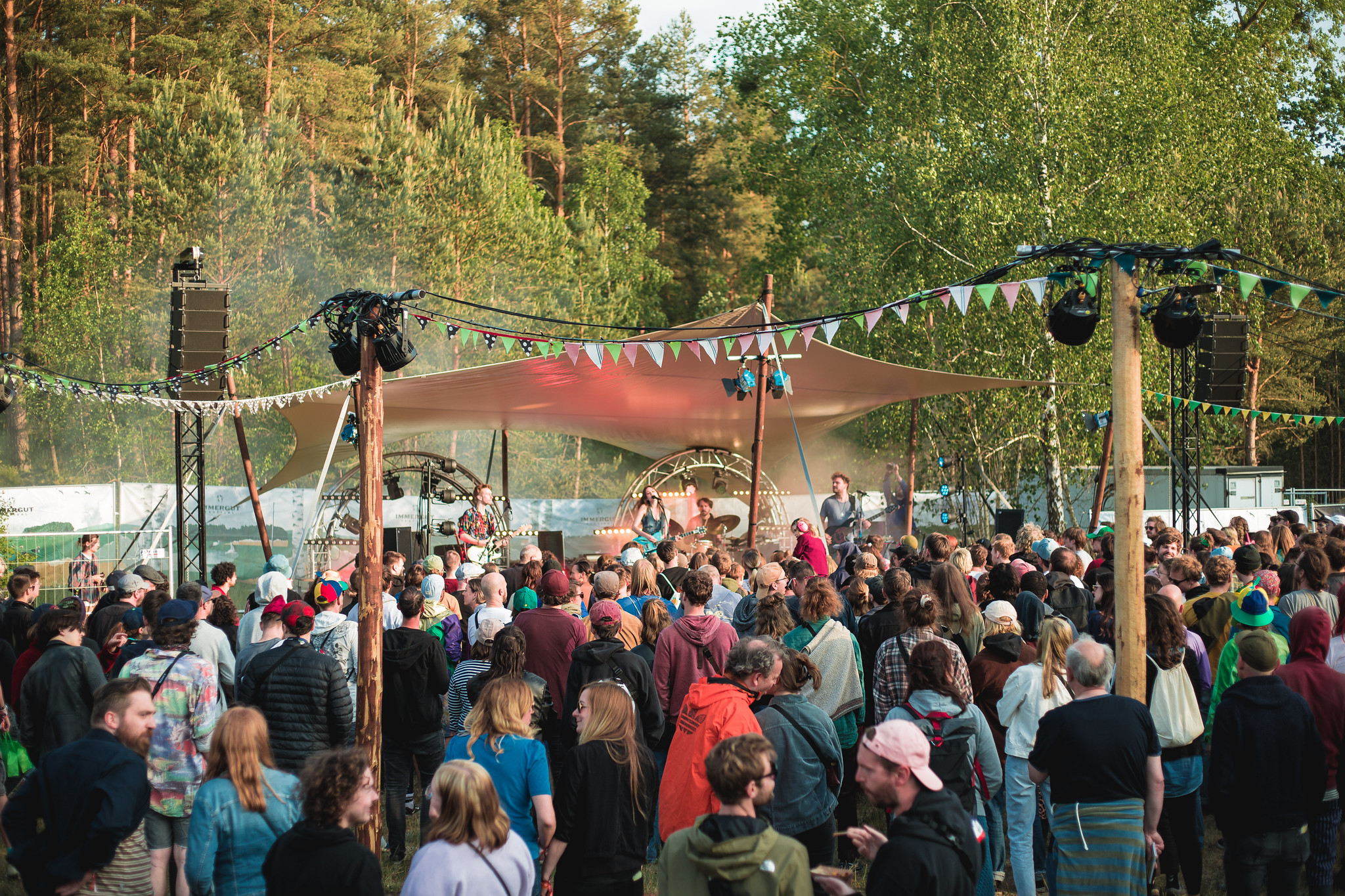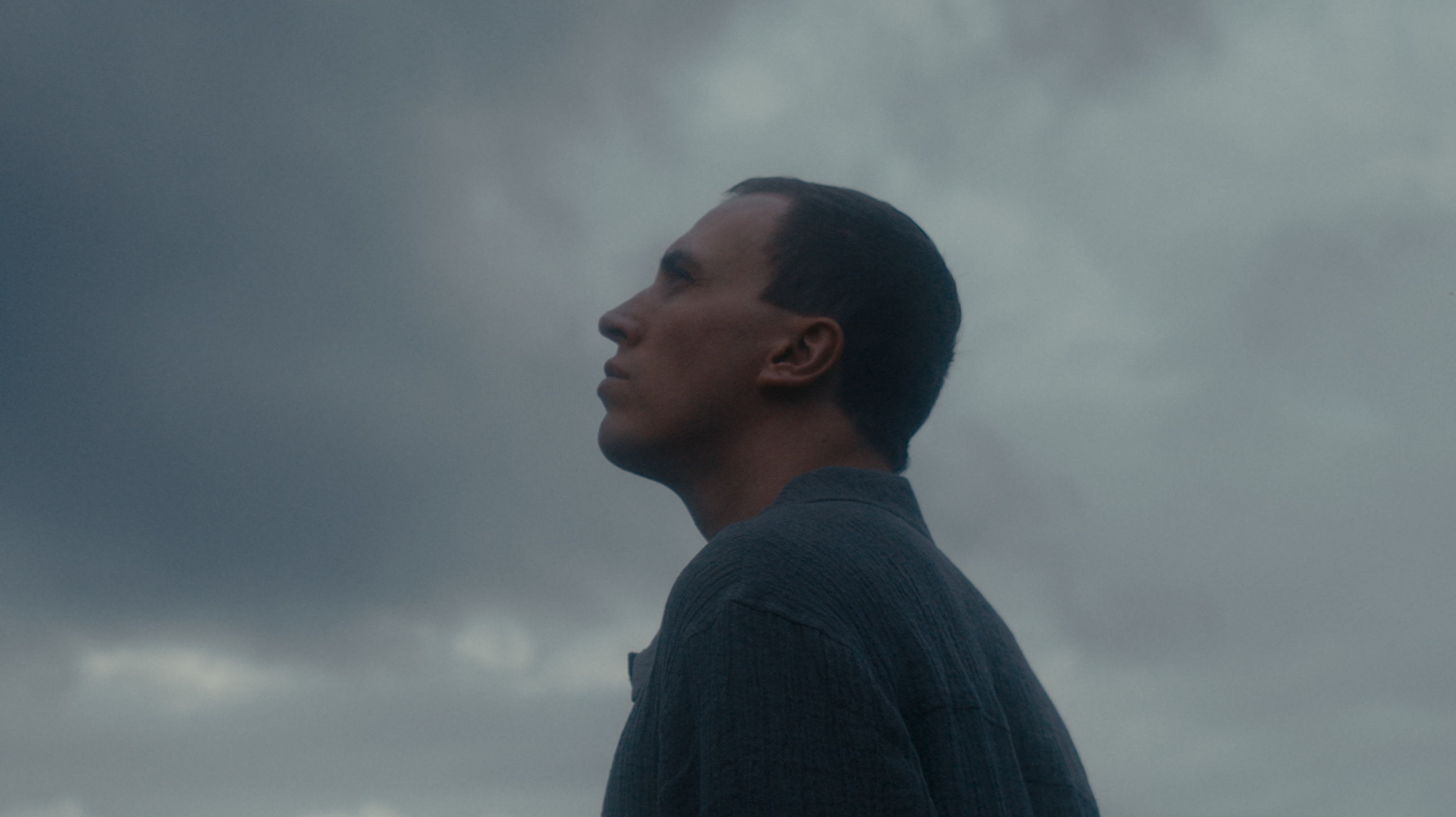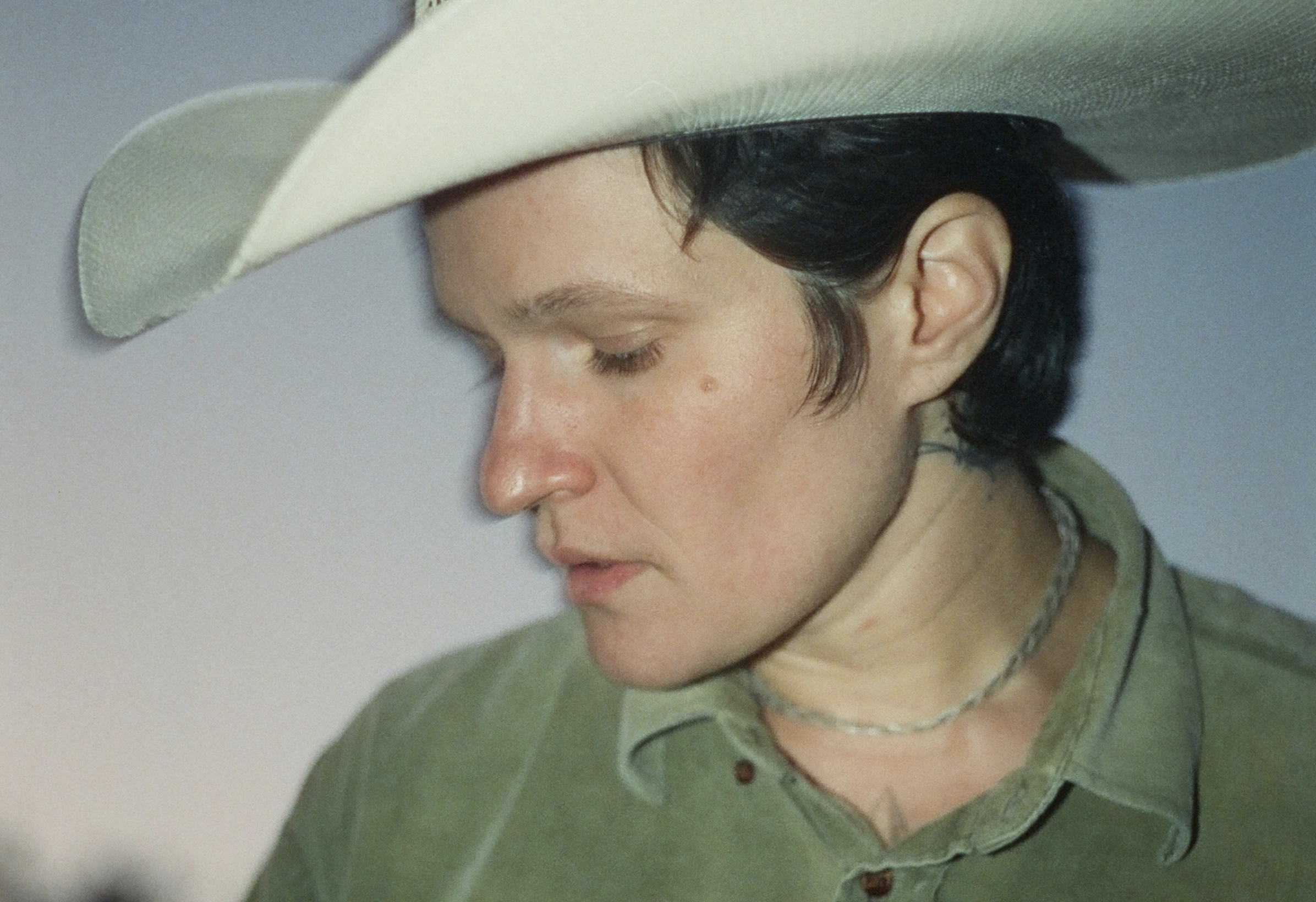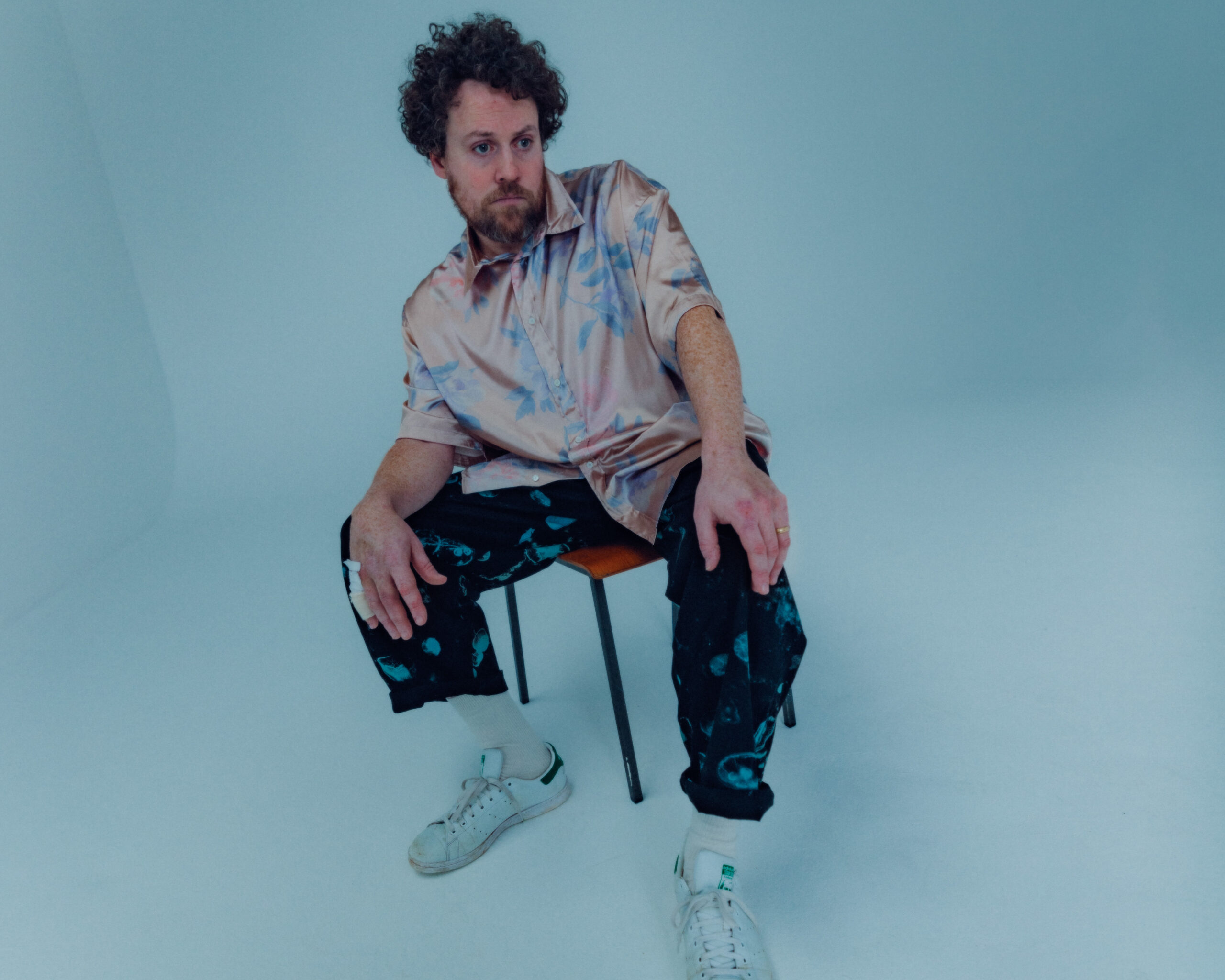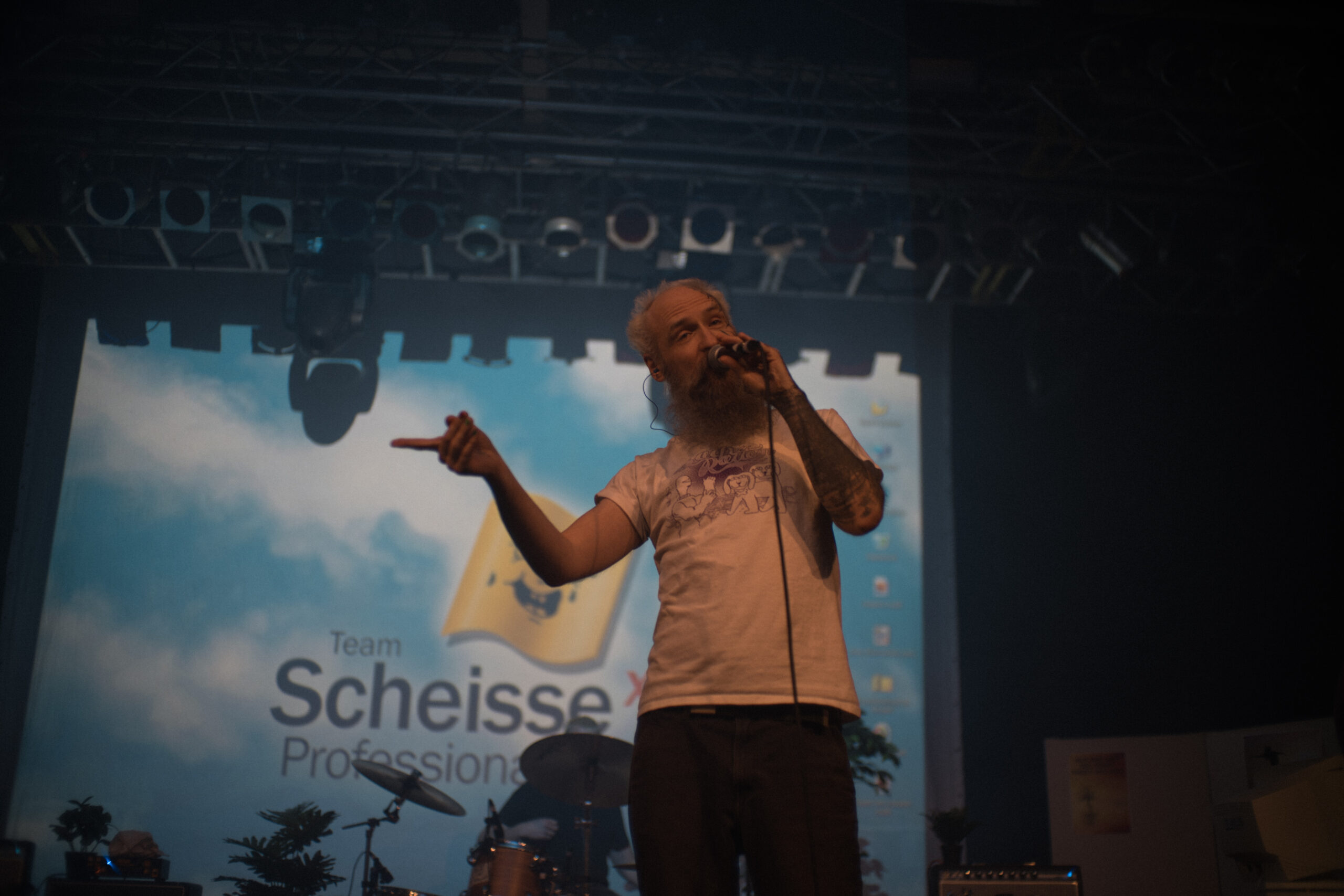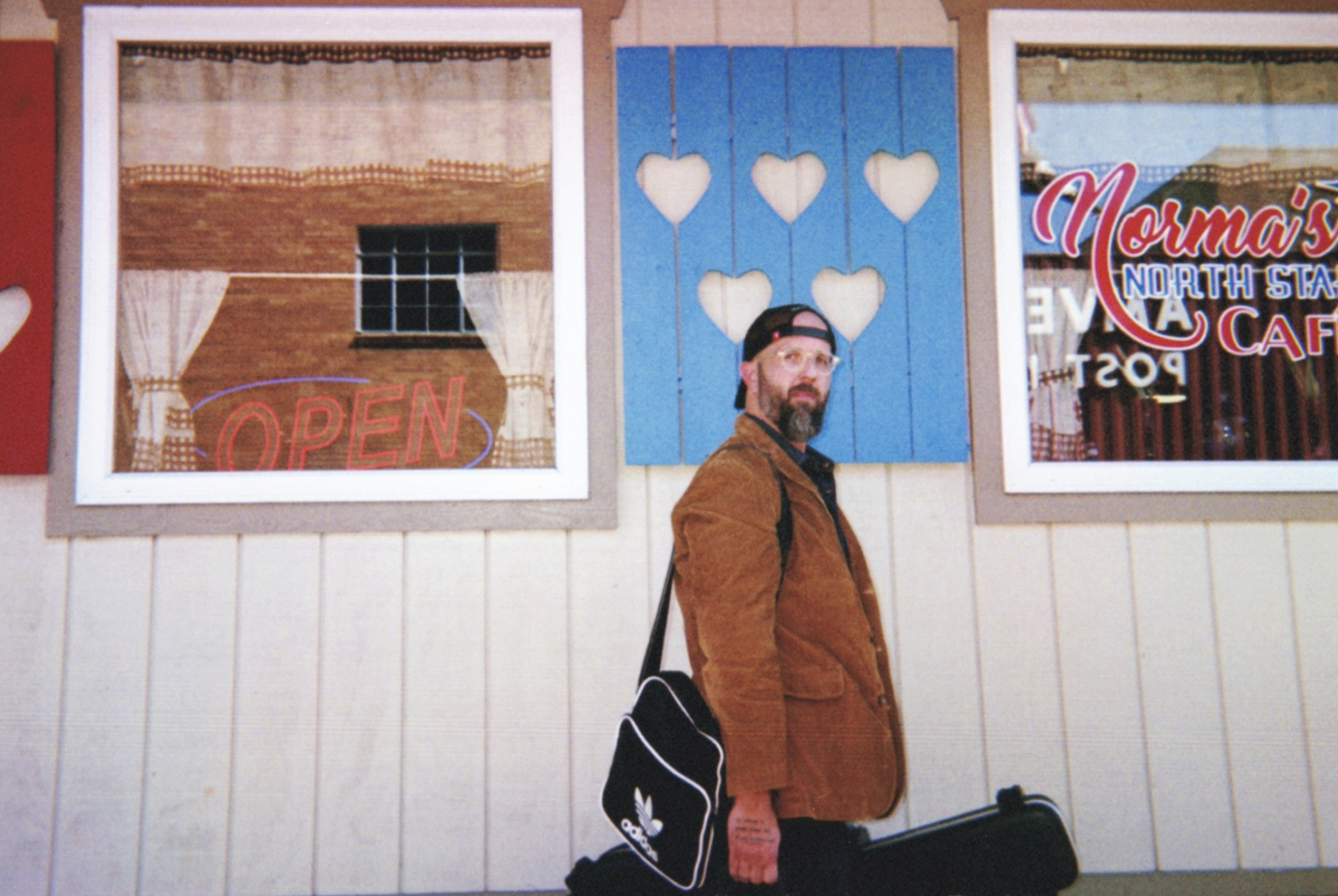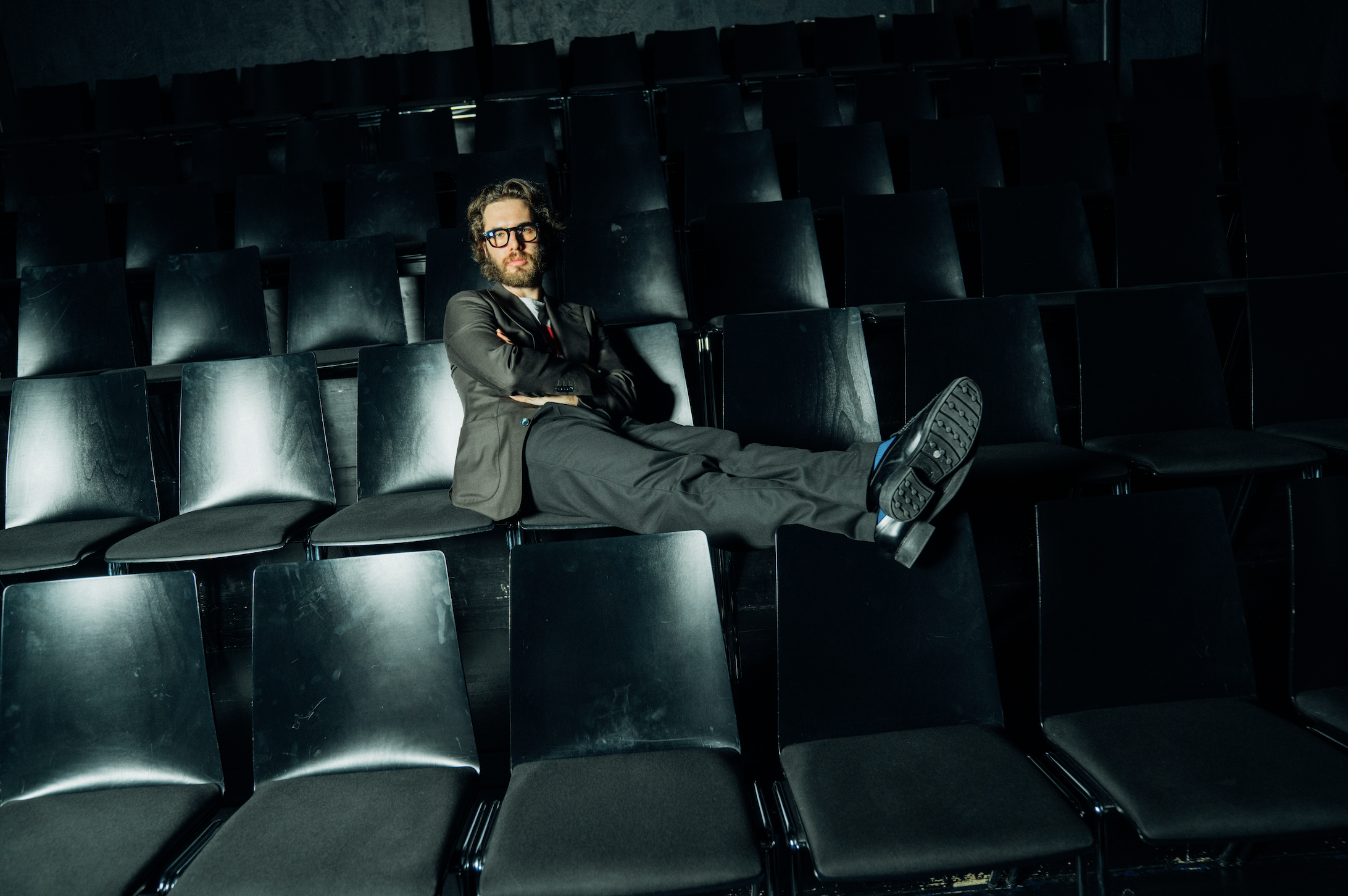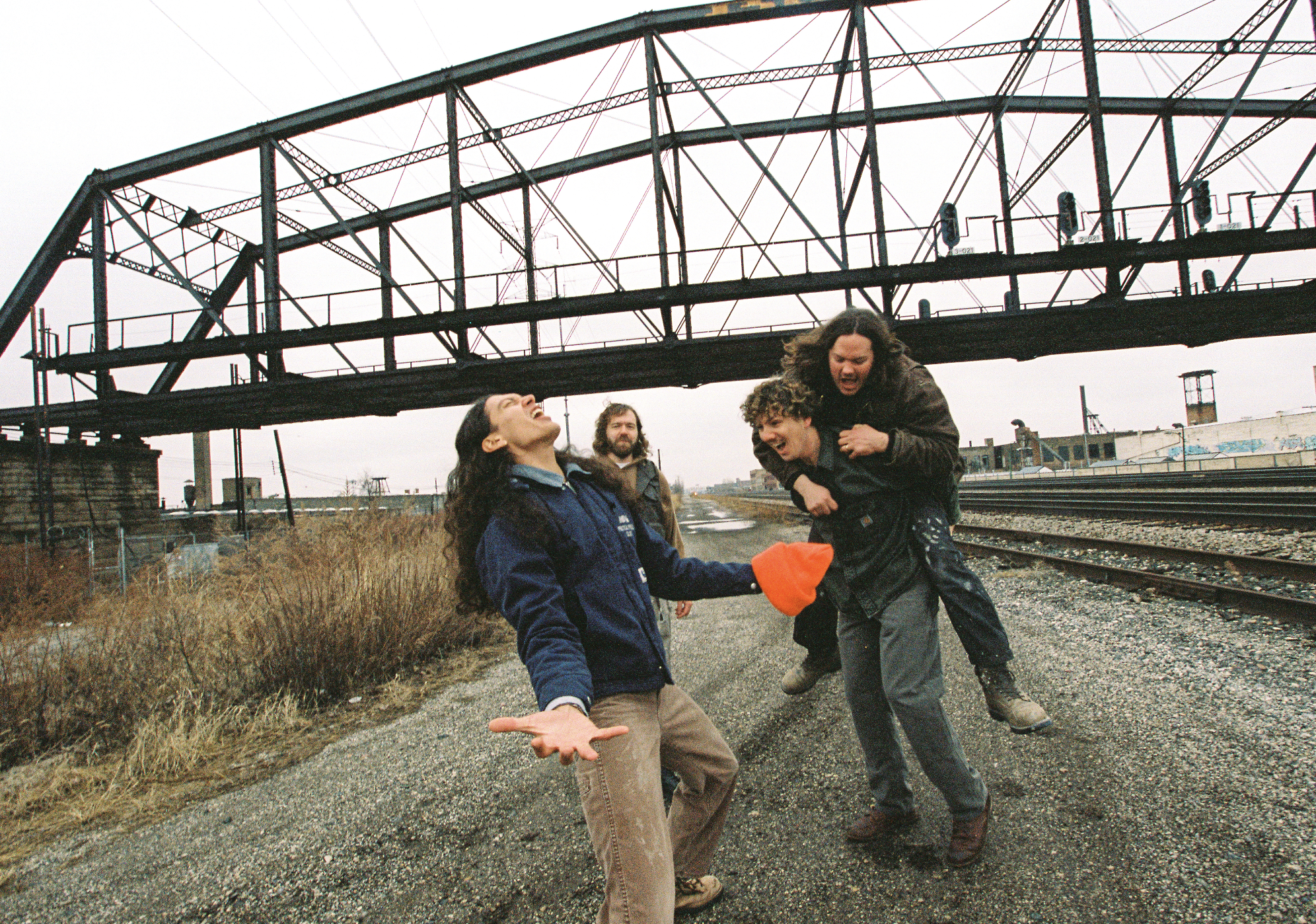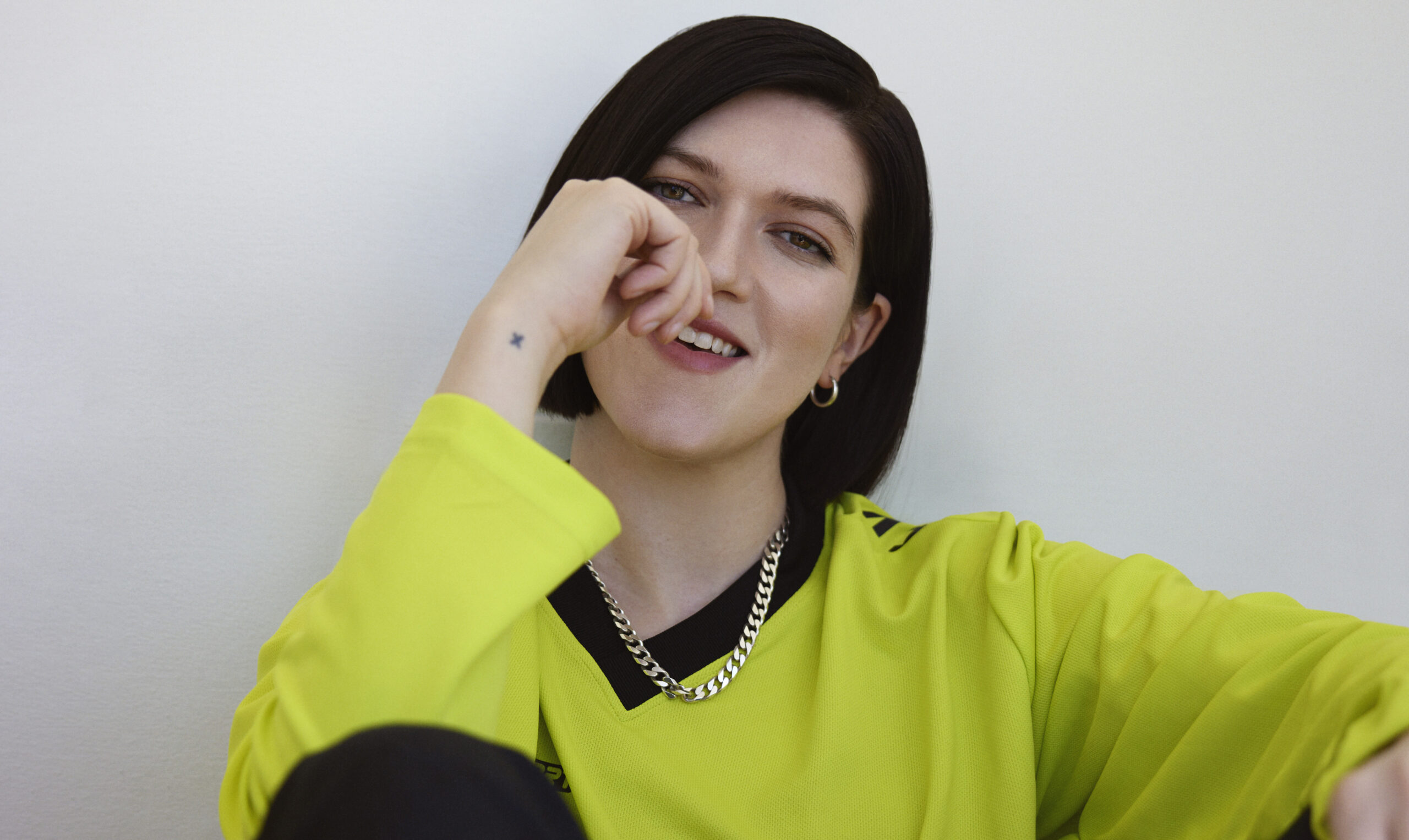Foto-© Vic Lentaigne
Wir feiern die ganzen Songs, die Romy, ansonsten Songwriterin und Sängerin von The xx, bisher solo veröffentlicht hat – umso schöner, dass nun mit Mid-Air seit einigen Wochen endlich das Solo-Debüt der Songwriterin vorliegt. “Es ist ein Album, das sich mit Liebe, Trauer, Beziehungen, Identität und Sexualität beschäftigt. Es ist ein Liebesbrief an die queeren Clubs, in denen ich Gemeinschaft und Anschluss gefunden habe”, sagt die Britin darüber. Die Entstehung des Albums, ihres ersten Soloprojekts, war ein Prozess, bei dem sie sich selbst außerhalb von The xx kennengelernt hat und in dem sie auch noch die Zeit hatte, sich zu verlieben. “Es ist in gewisser Weise ein Coming-Out-Album, obwohl ich mich in meinem persönlichen Leben schon vor langer Zeit geoutet habe, aber ich schätze, es ist auch ein Album zum Durchkommen – durch Trauer und Herzschmerz, hin zu Euphorie.” Wir haben mit Romy über Zoom gesprochen und eine weitere Episode unseres Podcasts The Space Between the Notes aufgenommen – zu hören hier, zu lesen hier:
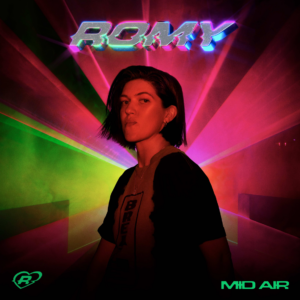 Mid Air is your debut solo album, and you’ve called it your coming out album, even though you’ve been out for a long time in your personal life. It was a big deal to you to be explicitly writing about romantic love with all female pronouns, and you’re a guitarist but this is very much a record full of club bangers. Can you start by talking a little bit about that and set the scene for the album a little bit?
Mid Air is your debut solo album, and you’ve called it your coming out album, even though you’ve been out for a long time in your personal life. It was a big deal to you to be explicitly writing about romantic love with all female pronouns, and you’re a guitarist but this is very much a record full of club bangers. Can you start by talking a little bit about that and set the scene for the album a little bit?
Yeah, well, the whole the whole experience has been kind of for me to try and challenge myself and try new things. And, you know, I think putting the guitar down is one of them and was like a good experience in the sense that I felt like it would have been in my comfort zone to make an album that was guitar ballads or more like a singer songwriter. I suppose that’s my safe space. I wanted to explore my other love, which is just big dance music, you know, club classics and Euro dance and trance and emotional dance music. So I was excited to combine the two and try and find a way to share those emotional songs, but in a new way.
Like a lot of music that’s coming out now, many of these songs were written during lockdown – I always wonder what it must be like making songs like these in isolation- that so make you want to be around other people dancing. How did you get over that dissonance? Was it difficult for you to find that headspace sometimes?
Definitely. I think that it made me appreciate connecting. What I’m drawn to in this more euphoric side of music is that I love songs that the moment they come on, the whole room unites and it feels really connected. And you know, as much as I tried to have my own kitchen disco, just me and my wife in lockdown, I really missed that feeling of the whole room connecting over music. I had that vision in my mind, I was thinking about a lot about a specific club that I went to when I was a teenager. That is really a big inspiration for this album. When I’m working on the music, I’m kind of picturing myself being 16, 17, going to that club for the first time, and the people I met and the music I heard and the way that it made me feel kind of safe and empowered to be myself. Even though I wasn’t able to go out to clubs when I was writing some of the songs, it was kind of my reference point in my imagination.
I want to ask about Strong, which you’ve said is about grief, and came out with a video directed by your wife Vic Lentaigne, with some really moving scenes with your cousin. It is one of many sad bangers on the album, and I know you’ve cited Robyn as a big influence as well, who’s an artist I love dearly. You really frame the club as a place not only for celebration but for healing and community and catharsis. Can you talk to me a bit about that sentiment and the song Strong?
Yeah. I think that I realised that I kind of keep my cards close to my chest. If someone asks me how am I say I’m fine. I don’t always want to burden people. So I think that when I have been on a night out I think that feeling where after a long week, being in a club and emotions being a little bit closer to the surface, being down low and hearing music that’s kind of bringing emotions to the surface and then in turn ending up having conversations that are a little bit more open due to the fact that my guard is down. And also being on the other side of people opening up to me in that way and the moments that I’ve shared with people in the smoking area or those kind of conversations are really special to me. I realised it was a place where I have let myself feel more. With writing Strong, and that kind of being about dealing with grief, but within it it’s a clubby sounding track, now I’ve been in a situation where I’ve played a show in a club and I’ve been in the crowd afterwards, and someone’s come up to me and told me about themselves grieving and how that song helped them and then I’m in the club having a conversation about grief with someone that I don’t know, that feels connected to me, felt like really special and a real full circle moment.
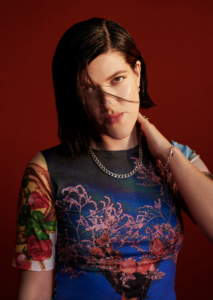 My wife is a photographer and it felt very natural for us when I was promoting for her to take some pictures. And it was lovely to work together. And the fact that we could be creative in that way, it wasn’t something that we had explored really until then. And then it felt very natural and we kind of carried it on. And when when we were talking about how to visually represent Strong, I just kind of said to her, it’s kind of to me like a hug in a club. But it was a very simple kind of reference, and she was like, Okay, so who would you like to hug? I didn’t know. And she was like, Well, why don’t you hug Louie? Because he’s my cousin and I’m thinking of him as well when I’m writing the lyrics, I’m kind of reflecting on myself, the way that I process things and sort of push things down, and also how I’d observed him in his own grieving. So it was kind of special that he said yes. I only played him the song right before we did that music video. So it was quite fresh. It was quite a long time to hug, we were shooting the video and it was really special to be close to him. That’s only something that Vic, I think would have thought of, and would have been able to kind of capture in that way. So it was really special to work with her like that.
My wife is a photographer and it felt very natural for us when I was promoting for her to take some pictures. And it was lovely to work together. And the fact that we could be creative in that way, it wasn’t something that we had explored really until then. And then it felt very natural and we kind of carried it on. And when when we were talking about how to visually represent Strong, I just kind of said to her, it’s kind of to me like a hug in a club. But it was a very simple kind of reference, and she was like, Okay, so who would you like to hug? I didn’t know. And she was like, Well, why don’t you hug Louie? Because he’s my cousin and I’m thinking of him as well when I’m writing the lyrics, I’m kind of reflecting on myself, the way that I process things and sort of push things down, and also how I’d observed him in his own grieving. So it was kind of special that he said yes. I only played him the song right before we did that music video. So it was quite fresh. It was quite a long time to hug, we were shooting the video and it was really special to be close to him. That’s only something that Vic, I think would have thought of, and would have been able to kind of capture in that way. So it was really special to work with her like that.
You included some snippets of sound from outside of clubs and bars that were recorded on your phone. Can you talk a little bit about the decision to do that? What do you think those do for the overall effect of the album?
The opening is me just saying to Fred in a session: can you turn up more a bit more? That was literally just taken from our session where I was asking for him to change the levels. We decided to keep it in because it just felt like it was a window into our process and a little exchange. I can hear in that that I’m still quite polite. We’re still getting to know each other and I’m still quite nervous about this whole project. It felt kind of an accurate representation of the start of the album and how I felt, I’m kind of pensively going in. The interlude DMC – it stands for a deep, meaningful conversation. If you do a club night, you should have a DMC corner for these moments for people to sort of share their feelings. I’ve got a voice over on there with me kind of talking about finding things difficult to talk about. It’s just supposed to be a little moment of something I’ve experienced to share that with with the listeners.
Do you feel like most of the writing happened in the studio, or do you have a specific writing practice that you stick to?
When I first started writing lyrics, I always started with the words first, I would just write basically just poems. I think it came from a place of being shy about singing and really wanting to be like really ready to do it. I think Oliver was also quite similar. That was how we started. As I’ve gotten older, I was really curious about how big mainstream pop music was made and I and I’ve done quite a few writing sessions with other people just to see, to learn some stuff. And one of the first different techniques that most people use is that they would just find some chords and then sing random melodies out loud and have no lyrics. When I first was asked to do that, I felt very naked. I was like, What? You mean? I don’t know what I’m going to say. In doing that, you end up, I think, kind of creating a different sort of feeling, which comes out because the melody is just free flowing and sometimes you end up saying words subconsciously that can inspire the lyrics. So when I was writing a lot of these songs with Fred, he would play some chords and I would just sing random melodies with them together. We’d say, Oh, that was good. Okay, more of that. In the end, I would sort of leave the session with these kind of rough skeletons of a song, but they had melody in them and a few words, and I’d go off and in my own time span be quite specific about the words and the story and trying to fit that into the melody. Then I come back to Fred and we’d develop it more.

When I do these interviews I always try to pick out one or two songs that are favourites that I want to talk about, but with Mid Air it was so hard to choose one! It’s banger after banger! I started listening and I was like Love Her, okay, that one definitely, what’s next. Weightless okay that one too, strong start! And by the time I got to the end I had pretty much marked every song as a favourite. I do want to ask about a couple of songs but first: one thing I think that’s reflective of is that it feels like a cohesive albumy album that flows very well, and is best as a whole, which is something that I don’t always associate with this type of music. Partly because club music is often song focussed, but also because it’s quite difficult to sustain this level of energy for so long. Did you feel like you were thinking a lot about the project as a whole album as you were writing it, or were you just accumulating songs?
I think subconsciously I definitely would have really been thinking about it as a whole. With the XX, we’ve always cared so much about the whole album and the way that the album flows and we kind of understood and had to accept that not everyone listens to an album in order or start to finish anymore. I’ve still got that, even though I’m approaching it from more of a kind of dance music perspective. I’ve got that more classic album kind of mindset where I really love the flow. I love making sure that it takes people on a journey and sustains the energy. So that was really in my mind. As the tracks were getting closer to being finished, that would influence how they were finished, you know.
What about Twice? I think that’s my favourite song on the album because I can’t figure out what about it makes me love it so much. Often there will be an element of a song – a lyric, or a surprising instrumental part – that will make me fall in love with it. But Twice is right at the centre of this album and I was having such a good time by that point, there is so much momentum, and it just does everything I want it to do in the build, and it sounds so good. How meticulous was the production process? I know you worked a lot with Fred Again… and Stuart Price – were there lots of versions or did it come together quite quickly? Are you obsessive about getting the perfect sounds?
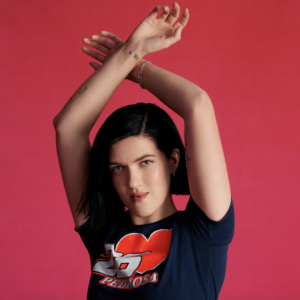 I think meticulous is the word, yes, I am very specific. Twice is a song that was written as an acoustic ballad and the journey that it’s gone on to get to the sonic world that it’s in now is like quite a long journey. So for it to feel good to you is exciting for me to hear. That’s one that Stuart produced. The album is made up of songs that Fred and I wrote together at the very beginning of this process, then a few songs that I wrote independently and Stuart produced. There’s songs that Stuart finished that Fred had started. But I wanted to make sure that it all felt cohesive, even though there’s that kind of intertwining of different production. I went on a bit of a journey when Fred and I first made a lot of this music. I was really inspired to share these references, these big, bold pop dance songs, and Fred was amazing at making these amazing sounds and this world that I was hearing in my head. And then I think my head got in the way and I sort of felt like my confidence got a bit confused, and I thought maybe I’ll try some different versions of these songs, so I went and worked with quite a few different producers. Then I realised, actually, I really think that what we have and what we started with – that initial sound – was right. So that’s why it took longer. I went back to Fred and I said I think actually we had something great here. Stuart Price was great at listening to what we had and helping us finish it and helping us evolve it and have that fresh perspective. But, you know, the amount of versions that Stuart and I sat and made is kind of incredible, his patience to go again and again and again so we get it right, I really admire, and we did a lot of versions of that to find the balance between all the ideas.
I think meticulous is the word, yes, I am very specific. Twice is a song that was written as an acoustic ballad and the journey that it’s gone on to get to the sonic world that it’s in now is like quite a long journey. So for it to feel good to you is exciting for me to hear. That’s one that Stuart produced. The album is made up of songs that Fred and I wrote together at the very beginning of this process, then a few songs that I wrote independently and Stuart produced. There’s songs that Stuart finished that Fred had started. But I wanted to make sure that it all felt cohesive, even though there’s that kind of intertwining of different production. I went on a bit of a journey when Fred and I first made a lot of this music. I was really inspired to share these references, these big, bold pop dance songs, and Fred was amazing at making these amazing sounds and this world that I was hearing in my head. And then I think my head got in the way and I sort of felt like my confidence got a bit confused, and I thought maybe I’ll try some different versions of these songs, so I went and worked with quite a few different producers. Then I realised, actually, I really think that what we have and what we started with – that initial sound – was right. So that’s why it took longer. I went back to Fred and I said I think actually we had something great here. Stuart Price was great at listening to what we had and helping us finish it and helping us evolve it and have that fresh perspective. But, you know, the amount of versions that Stuart and I sat and made is kind of incredible, his patience to go again and again and again so we get it right, I really admire, and we did a lot of versions of that to find the balance between all the ideas.
Well we’ve talked about the club a bit but in my mind this is very much festival music, and if you look at the list of your upcoming performances there are a lot of festivals. How has it been for you transitioning from performing quite reserved songs with The xx to basically trying to get thousands of people to dance?
It’s very different and it’s something that I have started to really enjoy rather than feel nervous about. I think that DJing has been an amazing experience of building my confidence behind the decks and feeling more comfortable to just move. Then it reached the point where I’ve just really missed singing. So then at Coachella I did my first kind of hybrid set between DJing and singing with live electronic elements. I think I’m going to evolve that and see what happens. I’m never going to be doing dance routines or owning the stage, I can’t. As much as I wish I could, I just can’t. So I’ve got to figure out how I can do that in a way that feels natural.
Apart from music, what’s the most fun thing?
I love football. The way that it brings people together in a way that’s similar to music is something that I really think I’ve found very special and is only something I’ve really had in the past five years back in my life apart from when I was a kid. I played in a charity football match when it was absolutely boiling and I have a lot of respect for the football players and their fitness level and playing in all conditions. It’s just such an amazing feeling and it was great to be able to do that and support a cause and meet other people, and it was cool because there were other people from music and that and it was nice to meet other musicians that were into football as well.
Romy live:
17.11.23 Berlin, SchwuZ – ausverkauft


